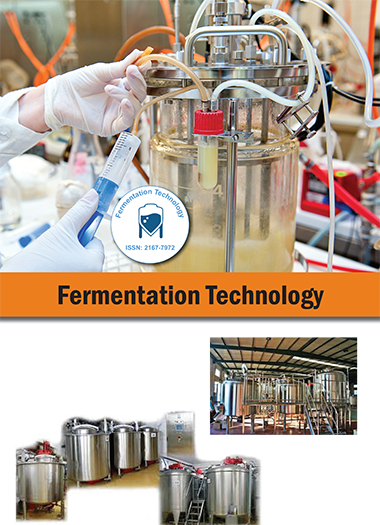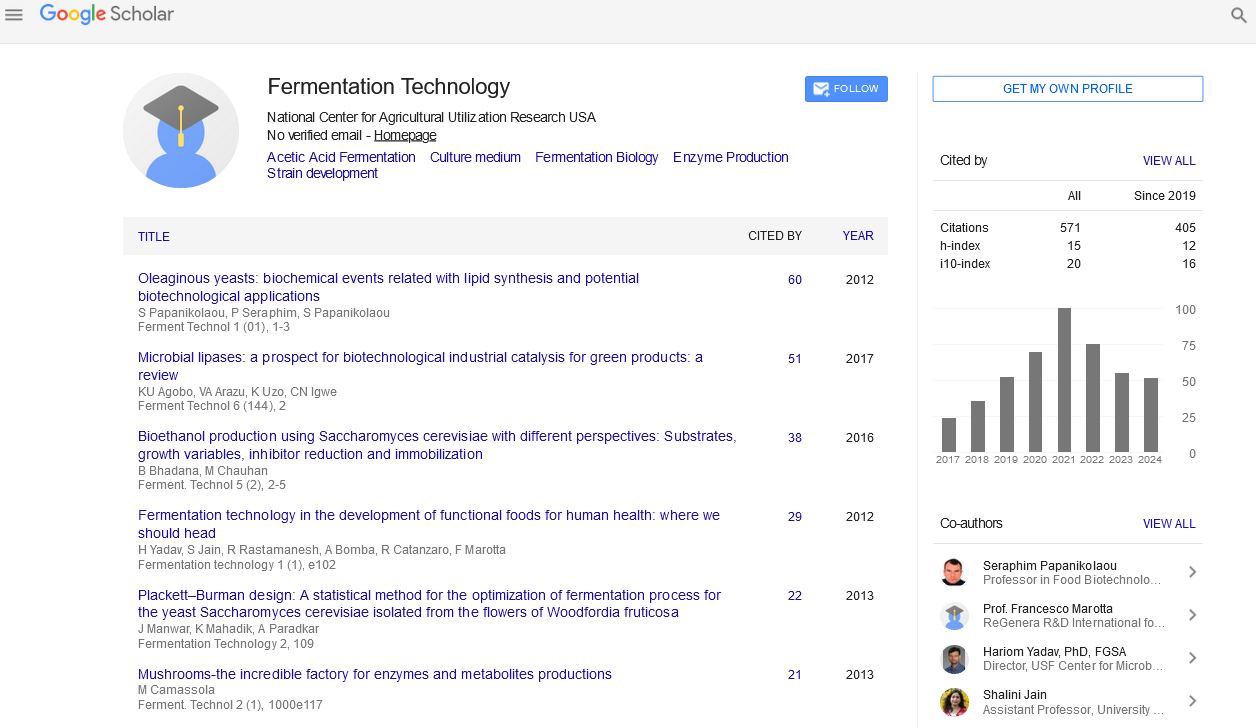Indexed In
- Open J Gate
- Genamics JournalSeek
- Access to Global Online Research in Agriculture (AGORA)
- RefSeek
- Hamdard University
- EBSCO A-Z
- OCLC- WorldCat
- Publons
Useful Links
Share This Page
Journal Flyer

Open Access Journals
- Agri and Aquaculture
- Biochemistry
- Bioinformatics & Systems Biology
- Business & Management
- Chemistry
- Clinical Sciences
- Engineering
- Food & Nutrition
- General Science
- Genetics & Molecular Biology
- Immunology & Microbiology
- Medical Sciences
- Neuroscience & Psychology
- Nursing & Health Care
- Pharmaceutical Sciences
Petroleum oil biodegradation by Corynebacterium aquaticum and Pseudomonas aeruginosa strains isolated from the industrial rejection of the refinery of Arzew-Algeria
World Congress on Beneficial Microbes: Food, Pharma, Aqua & Beverages Industry
August 25-27, 2015 Valencia, Spain
Linda Aouad
Oran university, Algeria
Posters-Accepted Abstracts: Ferment Technol
Abstract:
Petroleum hydrocarbons including polycyclic aromatic hydrocarbons have been categorized as priority pollutants by US Environmental Protection Agency (USEPA), Quebec Ministry of Environment (QMENV) and many other environment and health organizations in the world. In the present study, fifteen organisms were isolated from soil and water samples from the industrial rejection of the Refinery of ARZEW (Oran-Algeria). The bacterial strains were selected due to their capacity of growing in the presence of hydrocarbon. The isolates were identified as belonging the majority to genera Corynebacterium (5 strains), Corynebacterium aquaticum (3 strains). Besides, three strains were identified as Pseudomonas aeruginosa, one as Pseudomonas spp., one as Pseudomonas fluorescence, one as Brevibacterium spp. and one strain as Stenotrophomonas maltophilia. Growth of the mentioned strains was realized in mineral liquid media supplemented with petroleum oil as sole carbon source. Optimized conditions to improve the biodegrading activity of the isolated strains were studied using different concentration of petroleum oil and surfactant, the effect of nitrogen source, phosphorus and immobilized cells on Petroleum-oil biodegradation was also studied. A consortium of the bacteria having the best biodegradation activity was also tested in addition to the estimation of DBO and DCO in the biological treatment pond of the purifying station of ARZEW Refinery.
Biography :
Dr. Linda Aouad is currently working as researcher in Oran university, Algeria.
Email: aouadlinda@yahoo.fr

